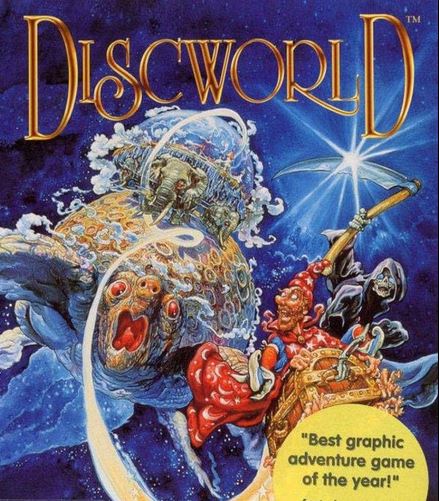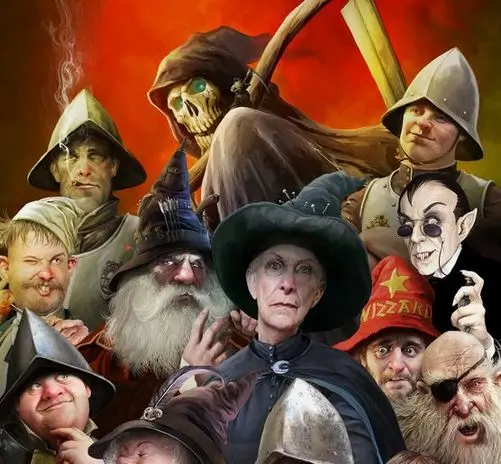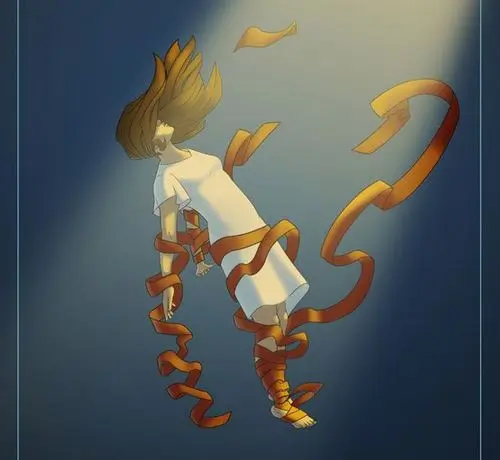Discworld is a beloved and iconic series of fantasy novels created by the late Sir Terry Pratchett. Spanning over 40 books, the series is set in a flat, disc-shaped world that rests on the backs of four giant elephants, which in turn stand on the shell of Great A’Tuin, a massive cosmic turtle swimming through space. With its unique blend of humor, satire, and fantasy, Discworld has captivated readers worldwide and remains a cornerstone of modern fantasy literature.
What Is Discworld?
Discworld is a fictional universe that serves as the setting for a series of novels, short stories, and supplementary works written by Terry Pratchett. The series began in 1983 with the publication of The Colour of Magic and continued until 2015 with The Shepherd’s Crown. The books are known for their wit, wordplay, and clever social commentary, often parodying real-world events, cultures, and literary genres.
The world itself is a flat disc, complete with oceans, continents, and cities, suspended in space by a great cosmic turtle named Great A’Tuin. The disc is supported by four enormous elephants: Berilia, Tubul, Great T’Phon, and Jerakeen. This whimsical and fantastical setting provides the backdrop for a diverse range of stories, characters, and themes.
The Structure of the Discworld Series
While all the Discworld novels are set in the same universe, they can be grouped into several subseries, each focusing on different characters and themes:
- The Rincewind Series: This subseries follows the adventures of Rincewind, a cowardly and inept wizard. Starting with The Colour of Magic, these books often involve Rincewind getting caught up in dangerous situations, usually against his will.
- The Witches Series: Centered around the witches of Lancre, particularly Granny Weatherwax, Nanny Ogg, and Magrat Garlick, this subseries explores themes of folklore, gender, and the power of stories. Notable titles include Wyrd Sisters and Lords and Ladies.
- The City Watch Series: Focusing on the city of Ankh-Morpork’s police force, led by Sam Vimes, the City Watch books are some of the most popular in the series. They blend crime fiction with fantasy, offering a satirical look at law, order, and society. Key books include Guards! Guards! and Men at Arms.
- The Death Series: Perhaps the most philosophical of the Discworld subseries, these books revolve around Death, a skeletal figure with a deep voice and a surprising amount of humanity. Mort and Reaper Man are among the standout titles.
- The Tiffany Aching Series: Aimed at younger readers, this subseries follows Tiffany Aching, a young witch-in-training, as she grows into her powers. The series explores themes of responsibility, identity, and the passage of time. The Wee Free Men and The Shepherd’s Crown are part of this subseries.
- Standalone Novels: While many Discworld books belong to a specific subseries, some stand alone with their own unique characters and stories. Examples include Small Gods, which explores religion and belief, and The Amazing Maurice and His Educated Rodents, a twist on the Pied Piper legend.

Themes and Satire in Discworld
One of the defining features of Discworld is its use of satire to explore complex themes. Terry Pratchett had a remarkable ability to tackle serious subjects with humor, making the series not just entertaining but also thought-provoking. Here are some of the recurring themes in Discworld:
- Power and Corruption: Many Discworld books explore the nature of power and its potential for corruption. This theme is particularly evident in the City Watch series, where the characters often navigate the murky waters of politics, crime, and authority.
- Gender and Identity: The Witches series, in particular, delves into issues of gender and identity, challenging traditional roles and expectations. Pratchett’s portrayal of strong, complex female characters like Granny Weatherwax and Tiffany Aching has been widely praised.
- Religion and Belief: Small Gods is a prime example of how Pratchett used Discworld to examine religion and belief systems. The book humorously yet poignantly explores the power of faith, the nature of gods, and the relationship between belief and reality.
- Death and Mortality: The Death series provides a unique perspective on death and what it means to be alive. Through the character of Death, Pratchett addresses the inevitability of mortality, the meaning of life, and the importance of living fully.
- The Power of Stories: Throughout Discworld, Pratchett emphasizes the importance of stories and their impact on reality. This theme is central to the Witches series and is encapsulated in the idea that “stories make us who we are.”
The Legacy of Terry Pratchett and Discworld
Terry Pratchett’s Discworld series has had a profound impact on the world of literature. His unique blend of humor, fantasy, and social commentary has inspired countless readers and writers alike. Pratchett was knighted for his services to literature in 2009, and his influence continues to be felt long after his passing in 2015.
The Discworld novels have been adapted into various forms, including television series, radio plays, and stage productions. The series has also inspired a dedicated fanbase, with conventions, fan clubs, and online communities celebrating the world of Discworld.
Where to Start with Discworld
With over 40 books, newcomers to Discworld might wonder where to start. While the series can be read in any order, many readers suggest starting with either Guards! Guards! for its introduction to the City Watch, or The Colour of Magic to experience the series from its very beginning. For those interested in a more standalone experience, Small Gods is a highly recommended entry point.
Fun Facts About Discworld
- L-Space: In Discworld, libraries are connected by “L-Space,” a concept that suggests that all books are linked through a vast, multidimensional space. This idea plays into Pratchett’s love of books and the power of knowledge.
- Unseen University: The Unseen University in Ankh-Morpork is the Discworld equivalent of a magical university, where wizards study magic. It’s a parody of academia, filled with eccentric characters and absurd situations.
- The Discworld Conventions: Discworld fans have organized conventions around the world, celebrating the series with panels, discussions, and even reenactments of scenes from the books.
Discworld is more than just a series of fantasy novels; it’s a rich, satirical universe that offers a unique lens through which to view our own world. Through its memorable characters, clever humor, and insightful commentary, Terry Pratchett’s Discworld has left an indelible mark on the landscape of fantasy literature. Whether you’re a longtime fan or new to the series, there’s always something new to discover in the flat world on the back of a turtle.




